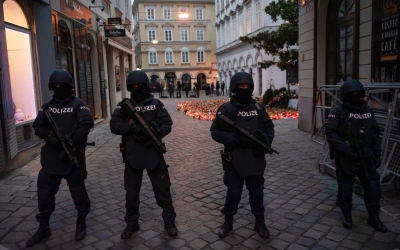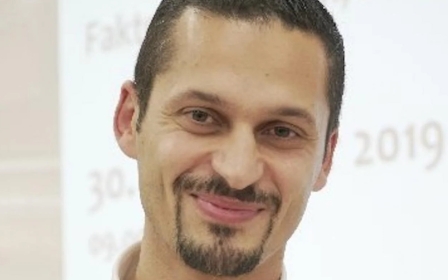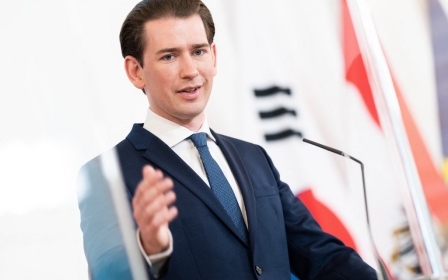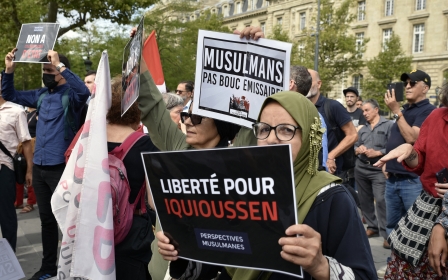How Austria made the study of Islamophobia a crime
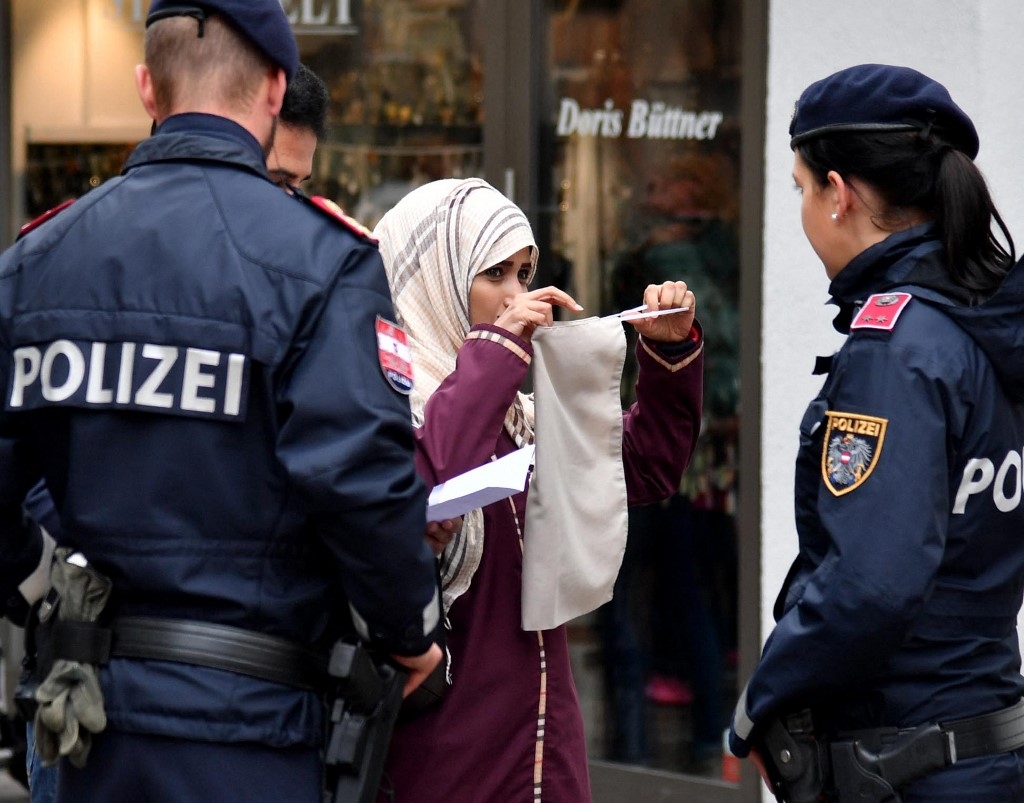
Operation Luxor was the largest police operation Austria had witnessed since 1945.
Targeting alleged terrorists, more than 100 defendants were included in the preliminary investigation against leaders of Muslim civil society and critics of discriminatory policies implemented during the chancellorship of Sebastian Kurz (2017-2021), which were mostly rescinded by the courts. I became the image of this operation.
Kurz, once dubbed Austria’s Wunderkind and the great hope of many conservative politicians throughout Europe, has become infamous for his anti-Muslim policies. In the name of fighting political Islam, his government closed mosques, banned the hijab and finally established the Documentation Centre Political Islam to monitor Muslim civil society in order to ultimately make "political Islam" a criminal offence.
The implications were dramatic and wide-ranging. The raid left my whole family, especially my young children, traumatised … my bank account and assets were frozen for two years
As the founding editor of the academic journal Islamophobia Studies Yearbook and the founding co-editor of the European Islamophobia Report, I have also been a vocal opponent of these policies, criticising them as authoritarian moves that undermine legal equality, religious freedom, freedom of association and, more generally, human rights.
But as a public scholar, I naively believed that my freedom of expression would not be restricted. At least not to the extent I had to witness.
New MEE newsletter: Jerusalem Dispatch
Sign up to get the latest insights and analysis on Israel-Palestine, alongside Turkey Unpacked and other MEE newsletters
When, on 9 November 2020, special forces of the Austrian police stormed my house in Vienna at 5am, they handed me a search warrant that claimed that I could be a terrorist wanting to topple the Egyptian government and create a worldwide caliphate. I was astounded, to say the least.
The implications were dramatic and wide-ranging. The raid left my whole family, especially my young children, traumatised. I felt constantly insecure due to the tapping of my phone and other surveillance measures. My bank account and assets were frozen for two years.
More importantly, while the identity of most targets of Operation Luxor were not disclosed, media coverage turned me into the public face of the defendants.
Conspiracy theories
The suspicions listed in the warrant were astonishing and one aspect, in particular, was most interesting: my academic work on Islamophobia was cited as a reason for the terrorism allegations. The intelligence agency’s regular reports outlining why I was seen as a security threat delved deep into my academic work on Islamophobia, relating it to conspiracy theories and claiming that my Catholic director at Georgetown University, Washington, DC, was a staunch Islamist.
But while the appellate court of Graz ruled in June 2021 that the raid was unlawful - consistent with the many other rulings of supreme courts that rescinded many anti-Muslim measures and legislation, from the closure of mosques to the hijab ban - there was no political will to stop the investigation.
Finally, the trial court (at the regional court of Graz), which had allowed the initial unlawful raid, issued a shocking decision that upheld the investigation against me, citing explicitly my academic work.
According to the regional court, my “activities in the preparation of the so-called Islamophobia Report and activity with the Bridge Initiative at Georgetown University is intended to disseminate the fighting term ‘Islamophobia’ with the goal of preventing any critical engagement with Islam as a religion […] in order to establish an Islamic state […]”.
This reasoning did not come out of the blue but was slowly and surely introduced in the corridors of power, starting with politicians, the intelligence service and, finally, single lawyers.
"Extremism experts" such as Lorenzo Vidino were crucial in claiming that talking about Islamophobia was a means for "political Islam" to foster a "narrative of victimhood", as he had written in a report financed by the Austrian state that became an essential foundation for the raid and the continuing investigation.
When asked whether violent jihadists or adherents of political Islam were more dangerous, he told the Frankfurter Allgemeine Zeitung that "political Islam" was more dangerous, thus expanding the notion of "countering violent extremism" to "countering non-violent extremism".
Insanity
In this vein, the intelligence service even interrogated the dean of my faculty, asking him if he ever thought about the possibility of me influencing the student body as well as the faculty.
In other words: reconsider continuing to employ me at the university. This was after I had already emigrated to the United States following more threats to my academic work in Austria.
The intelligence service even interrogated the dean of my faculty, asking him if he ever thought about the possibility of me influencing the student body
Finally, the appellate court of Graz stopped this insanity. The court made its final decision and unequivocally declared that my “participation in social discourse - even when using terms such as ‘anti-Muslim racism’ […] the court of appeal cannot recognise any indication of a terrorist or anti-state tendency, membership of a terrorist or anti-state association or propaganda for such associations and their terrorist activities”.
This decision was consistent with other rulings, including the decision that the raid itself was unlawful and that there was no criminal offence whatsoever involved in this investigation.
While this decision is a personal relief, there is a lot of work to be done on behalf of the Austrian intelligence service, which has been primed by alarmist experts spreading conspiracy theories to draw a picture of an immediate Muslim threat.
And more generally, the Austrian political elite has to ask itself how it sees the future of Muslims, who constitute nine percent of the population, in the country. While most political parties have been either silent or supportive of anti-Muslim policies, the infamous Operation Luxor is a welcoming occasion to rethink the approach of the past years.
The views expressed in this article belong to the author and do not necessarily reflect the editorial policy of Middle East Eye.
Middle East Eye delivers independent and unrivalled coverage and analysis of the Middle East, North Africa and beyond. To learn more about republishing this content and the associated fees, please fill out this form. More about MEE can be found here.



